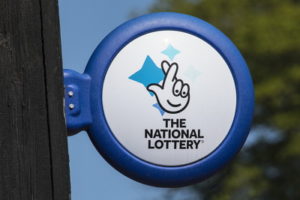 The idea of winning thanks to gambling is a hope that a lot of people have. The idea of winning a large prize on the lottery is something that many would wish happen to them. Many people bet and gamble for enjoyment with the hope they might win. We know the house always wins and, on average over time, most people will lose. Still, that doesn’t mean people don’t win and sometimes win large amounts at one time.
The idea of winning thanks to gambling is a hope that a lot of people have. The idea of winning a large prize on the lottery is something that many would wish happen to them. Many people bet and gamble for enjoyment with the hope they might win. We know the house always wins and, on average over time, most people will lose. Still, that doesn’t mean people don’t win and sometimes win large amounts at one time.
The problem is, winning money through gambling comes with its own set of problems, up to and including how you go about giving your money away to those that you wish to. Even if you don’t necessarily want to share your winnings with your family or friends, the likelihood is that you might want to make some charitable donations instead. The bad news is that there are laws and rules in place around who you can and can’t give your money to and how much tax will need to be paid on said money in the future.
Giving Money To Friends & Family
The first thing that you might wish to think about is giving some of your winnings to friends or family members. This comes with its own set of complications, depending on how it is that you win your money.
Lottery Winnings
 If you win the lottery, for example, then you can avoid falling foul of the majority of rules that are in place by ensuring that you and your friends and family have a syndicate agreement in place. These can be obtained from the National Lottery easily enough and are documents that declare who is involved in the syndicate and how prizes will be dished out.
If you win the lottery, for example, then you can avoid falling foul of the majority of rules that are in place by ensuring that you and your friends and family have a syndicate agreement in place. These can be obtained from the National Lottery easily enough and are documents that declare who is involved in the syndicate and how prizes will be dished out.
That not only stops any potential disputes in an event where a large sum of money is won, but also means that all of the parties that are included in the agreement avoid paying tax on their share of the winnings. Whilst most people would decide to re-invest small amounts of money won, if someone on your friends and family list is lucky enough to win millions then you can get your share of the money without panicking about how much tax may be due on it.
In other words, if you’re hoping to give away lottery winnings then make sure you’ve signed a syndicate agreement with the lucky recipients.
Other Gambling Winnings
 If you haven’t signed such an agreement and still want to give your money away or you’ve won your cash prize through something else, such as betting or bingo, then there are different rules in place on what happens next.
If you haven’t signed such an agreement and still want to give your money away or you’ve won your cash prize through something else, such as betting or bingo, then there are different rules in place on what happens next.
The likelihood is that they will have to pay Gift Tax on anything that they receive from you. Each year, you are able to give away a total of £3,000 worth of gifts without having to pay tax on it. You can also carry forward any unused tax exemption for a maximum of one year, meaning you could theoretically give away £6,000 if you gave nothing away the year before.
There is also the fact that small gift allowances mean that you can pass on as much as £250 per person each tax year, provided you haven’t used a different allowance already on that person. Birthday and Christmas gifts that come out of your regular income are exempt from Inheritance Tax.
You are also able to give up to £5,000 to a child as a wedding present, or £2,500 to a grandchild or great-grandchild and as much as £1,000 to any other person. Wedding gift allowances can be combined with other allowances, apart from the small gift allowance.
The tax rule applies for seven years, meaning that you don’t owe tax on gifts if you live for seven years after giving them. If you die within seven years, however, then an amount of tax will be owed depending on how long you lived for. Here is how it works out:
| Years Between Giving Of Gift & Death | Rate Of Tax Owed On The Gift |
|---|---|
| 7 or More | 0% |
| 6 to 7 Years | 8% |
| 5 to 6 Years | 16% |
| 4 to 5 Years | 24% |
| 3 to 4 Years | 32% |
There are also rules around giving gifts that you still benefit from, which remain part of the value of your estate. If you were to give your home to a relative but continue living there, for example, or giving away a painting but displaying it in your home.
In other words, there are ways to get around the problem of having to pay tax on winnings, such as giving your home to your relative but still living in it, so that they will be able to sell it when you die. Inheritance tax will still be owed on, depending on how long you live for after giving it away.
The rules around death make things seem more complicated than they actually are. You can give away whatever you want without inheritance tax having to be paid on it, provided you die more than seven years later. At the same time, gifts given to spouses and civil partners can be given without any inheritance tax having to be paid on it, so if you’re planning on giving money to your husband, wife or partner then you don’t need to be concerned as they won’t need to pay inheritance tax if you die not long after.
Giving Money To Charity
 There are plenty of people in the world that are generous enough to want to ensure that some of their money ends up going to their favourite charity. For those people, the good news is that there is nothing to stop you from doing just that.
There are plenty of people in the world that are generous enough to want to ensure that some of their money ends up going to their favourite charity. For those people, the good news is that there is nothing to stop you from doing just that.
Donations of any size are completely tax free when they’re given to a charity. If you wanted to, you could enter a charity lottery, which would help said charity thanks to the cost of the ticket, and then donate any winnings to the charity without any tax having to be paid on it.
One thing that is worth bearing in mind is that Gift Aid cannot be applied when donating money won via gambling to a charity as the money isn’t taxed. Gift Aid allowed charities and community amateur sports clubs to claim 25 pence for every £1 donated, without it costing the person donating any money.
In order for an amount of money to be eligible for Gift Aid, the donor has to have paid the same amount or more in either Income Tax or Capital Gains Tax on the amount being donated, as well as made a Gift Aid declaration.
